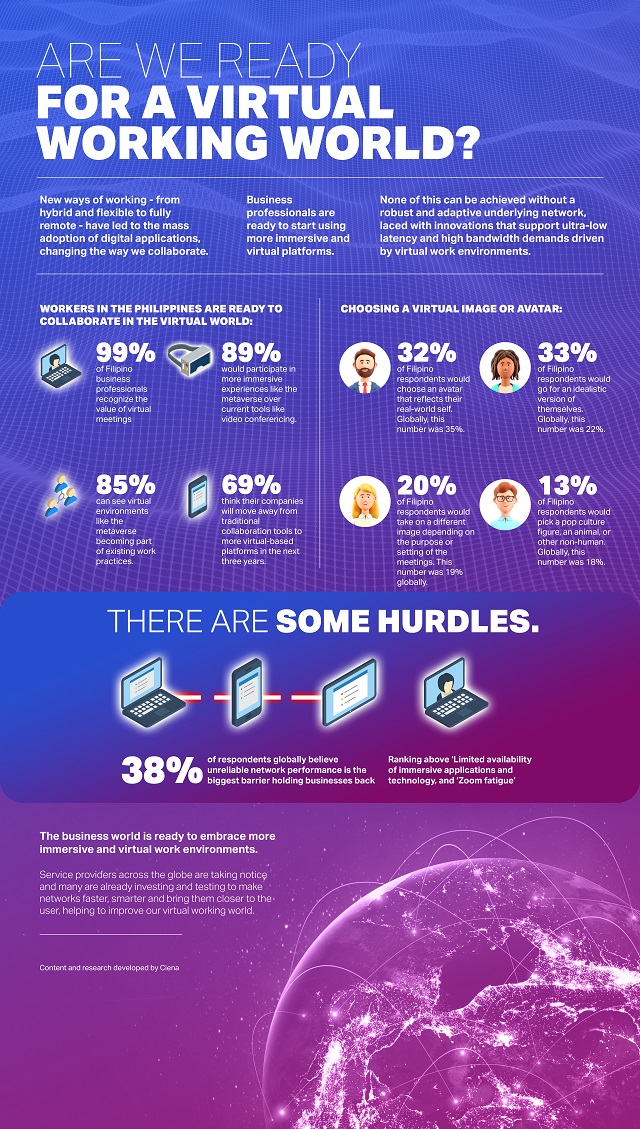A new global study commissioned by telecom equipment maker Ciena said 99% of Filipino business professionals surveyed recognize the value of virtual meetings, and 89% would participate in work meetings in the metaverse versus existing video conferencing tools.

The study, which surveyed 15,000 business professionals across 15 countries, found 60% of Filipino business professionals surveyed recognize that virtual meetings can provide greater convenience as compared to in-person meetings, while about half (48%) agree that virtual meetings can create an environment that is easier to collaborate. Forty-four percent of those surveyed also believe that virtual meetings are less expensive than in-person meetings.
In addition, 85% of Filipino respondents can envision their organization introducing virtual reality space platforms into existing work processes, and over two-thirds (69%) think their organization will move away from today’s static collaboration tools to a more immersive or virtual reality-based environment within the next three years.
Similarly, 94% of Filipino business professionals would feel comfortable conducting more formal work meetings in a virtual space like the metaverse.
When asked to name the top barriers to business adoption of virtual reality platforms, Filipino respondents named network reliability (55%) followed by the belief that immersive applications/tools are not yet widely available (46%).
“Filipino business professionals are clearly comfortable with virtual meetings and for the early adopters, ready to move to the metaverse,” Dion Leung, Ciena regional managing director for ASEAN said. “As hybrid work arrangements continue to be the norm, enhanced reality platforms will provide a whole new dimension for collaboration and innovation in the future of work.”
“There is growing momentum in the Philippines to improve the country’s digital infrastructure and connect everyone across the archipelago to ensure that network performance can facilitate and support innovation. To keep pace with the country’s digital ambitions, service providers must ensure a robust underlying network, laced with adaptive technologies that can support the ultra-low latency and high bandwidth that enhanced reality demands,” Leung added.
The research surveyed a total of 15,000 business professionals, including 1,000 professionals within each of the following countries/regions: UK, Germany, Norway, Middle East, Australia, Denmark, Japan, Colombia, India, US, Philippines, Mexico, Brazil, Indonesia and Singapore.




